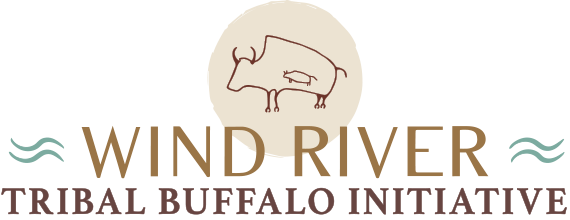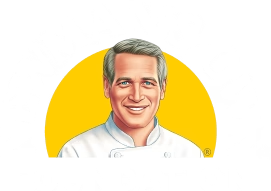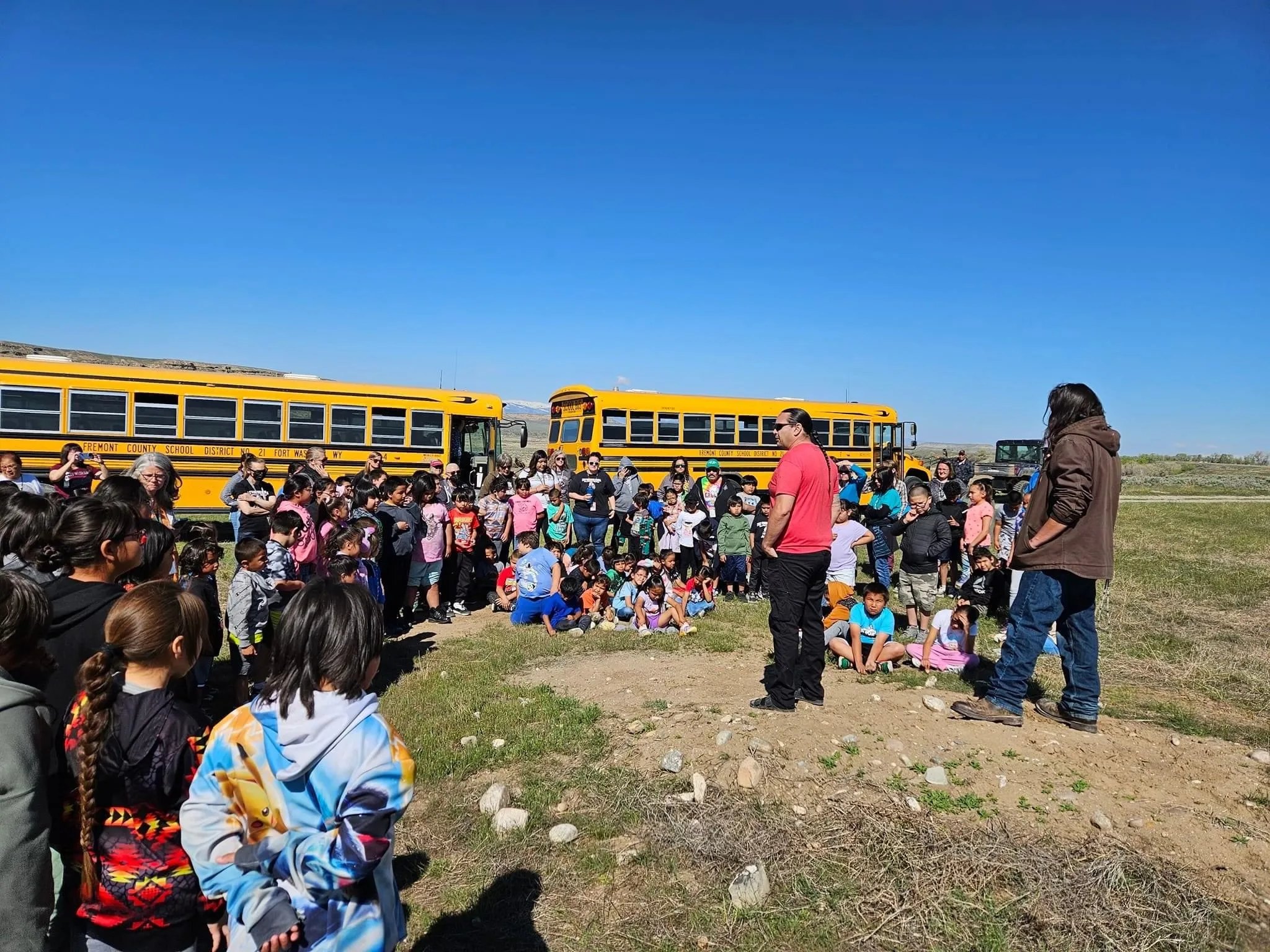Meet Jason Baldes, Executive Director of the National Wildlife Federation’s Tribal Buffalo Program, Executive Director, Board President of the Wind River Tribal Buffalo Initiative (WRTBI), and Vice President of the InterTribal Buffalo Council. A member of the Eastern Shoshone Tribe, Jason is a passionate Indigenous ecologist working to rematriate Buffalo to the Wind River Indian Reservation and reintroduce Buffalo into Indigenous diets. Jason’s work earned him a National Geographic Explorer designation this year.
The Wind River Tribal Buffalo Initiative aims to restore conservation Buffalo through land rematriation, community revitalization, and youth education in the Wind River Indian Reservation. The Reservation is located in Wyoming, and the land is shared by two Indigenous tribes, the Eastern Shoshone and the Northern Arapaho. WRTBI envisions thousands of Buffalo on tens of thousands of acres, protected under Tribal law as wildlife.
Why is Jason so passionate about Buffalo? According to the WRTBI, an estimated 60 million Buffalo once grazed across North America. Indigenous Tribes’ way of life was interwoven with Buffalo–they relied on them for food, shelter, and clothing. Buffalo’s role in the ecosystem was foundational to many Indigenous peoples’ spirituality and cultural belief systems. However, beginning in the 1800s settlers and the US army began killing off the herds for both sport and as a tactic of warfare against Indigenous peoples.
WRTBI sees itself as healing both land and culture. The way Buffalo graze and wallow revitalizes the landscape, natural habitats, and promotes diversity of wildlife throughout the North American plains. As the increase in agriculture has fractioned landscapes traditionally owned and managed by Tribes for the prioritization of cattle grazing and ranching, the health of the soil and food systems have simultaneously been degraded. Returning Buffalo to Native land also means restoring land rights to Native populations, retiring grazing permits, and restoring cultural ceremonies through field harvests. With the help of partners and the Shoshone and Arapaho Tribes, WRTBI recently acquired a 17,000-acre cattle grazing unit, retired the grazing permit, and is constructing the infrastructure and necessary fencing to allow Buffalo to roam unmanaged as wildlife on the prairie. As a keystone species, Buffalo will increase plant and animal biodiversity, restore nutrients to the soil, and provide nutritious food for thousands of Tribal people each year.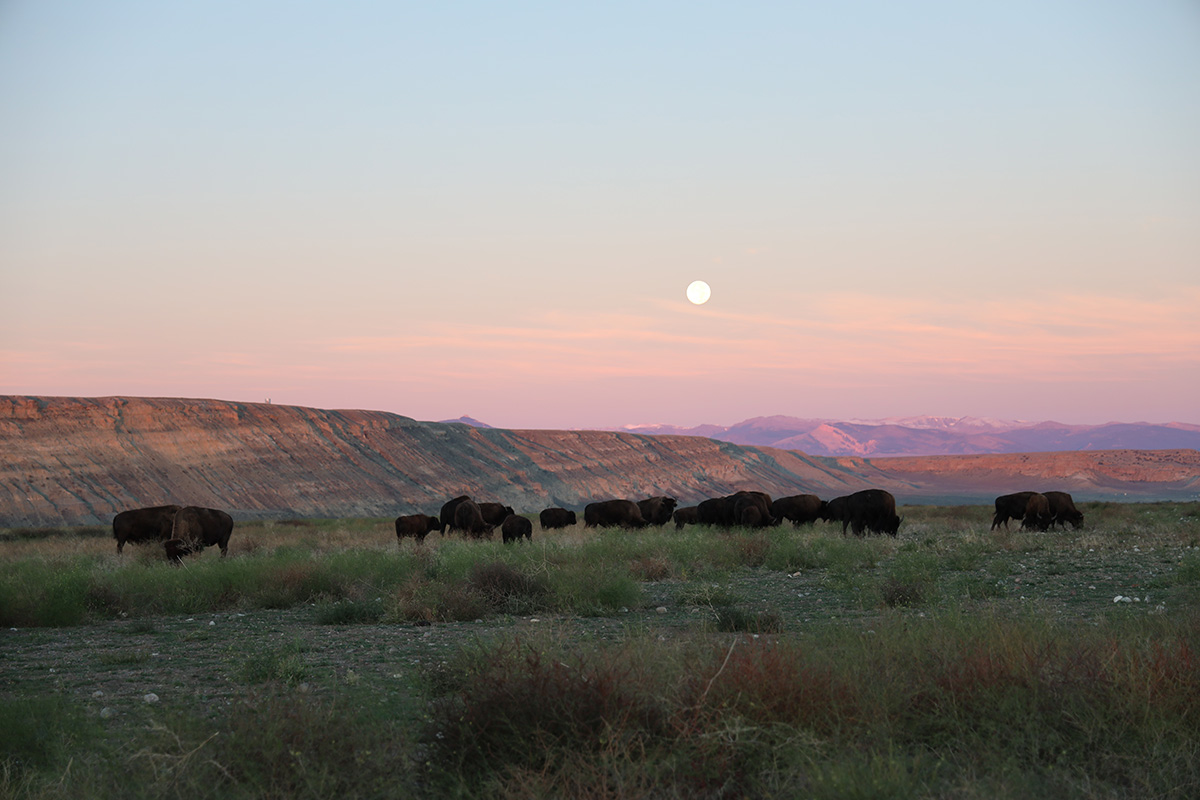 Rematriating Buffalo onto Tribal lands and educating Indigenous youth about the role Buffalo have played in their culture is central to Jason’s work. Over the past year, Jason’s initiative has impacted almost 1,000 youth through school trips to see the Buffalo, visiting schools, virtual talks, camps, and community events. Today, over 220 Eastern Shoshone and Northern Arapaho Buffalo roam freely on Tribal lands. Jason is deeply committed to intentional, multi-year youth programming to reconnect Indigenous youth to Buffalo. Under Jason’s leadership, WRTBI was able to host a record number of harvests and further reintegrate Buffalo into the diets of Indigenous youth this year.
Rematriating Buffalo onto Tribal lands and educating Indigenous youth about the role Buffalo have played in their culture is central to Jason’s work. Over the past year, Jason’s initiative has impacted almost 1,000 youth through school trips to see the Buffalo, visiting schools, virtual talks, camps, and community events. Today, over 220 Eastern Shoshone and Northern Arapaho Buffalo roam freely on Tribal lands. Jason is deeply committed to intentional, multi-year youth programming to reconnect Indigenous youth to Buffalo. Under Jason’s leadership, WRTBI was able to host a record number of harvests and further reintegrate Buffalo into the diets of Indigenous youth this year.
In addition to the work Jason leads through WRTBI, he personally takes great pride in mentoring the next generation of Indigenous ecological leaders. His team highlights a mentorship that has developed with a young man named Bryant from the Menominee tribe in Wisconsin. With Jason’s support and guidance, Bryant is now mentoring youth in his Tribe around fly fishing, restoring waterways, as well as Buffalo restoration. Each year, Jason hosts Bryant and a dozen youth from his Tribe at Buffalo camp in Wyoming to share knowledge, connect with the land, and learn from the Buffalo.
Newman’s Own Foundation has been a supporter of the Wind River Tribal Buffalo Initiative since 2022. Jackie Blackbird, Newman’s Own Foundation’s Indigenous Communities Officer, has this to say about Jason’s work: “I have been very impressed by how the Wind River Tribal Buffalo Initiative’s on-site education summer programs for Tribal youth. Newman’s Own Foundation’s Indigenous Food Justice grant is happy to support the ceremonial practices of harvesting Buffalo by reintroducing Buffalo meat back into Tribal youth’s diets.”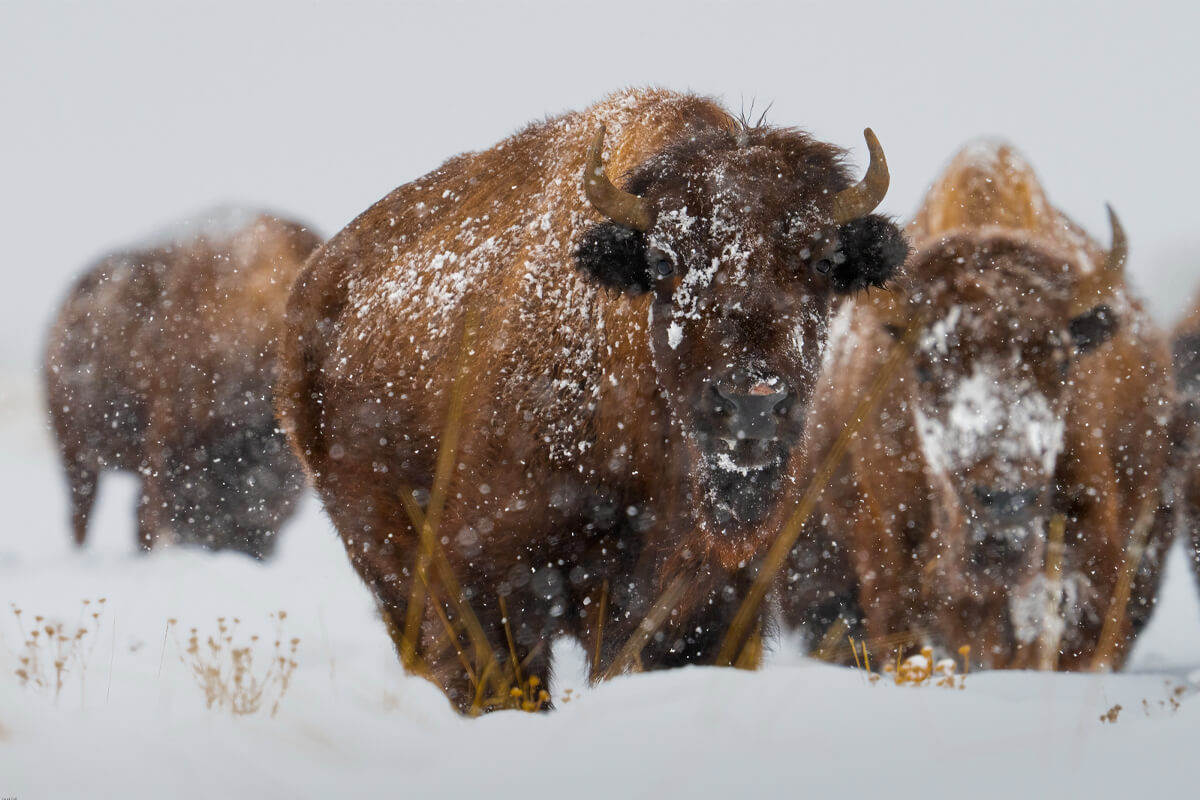 What can you do?
What can you do?
